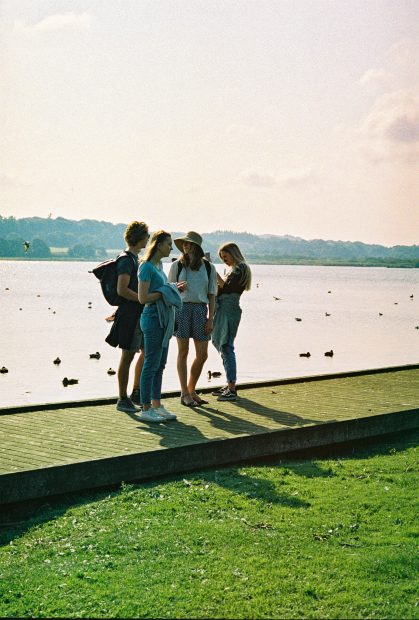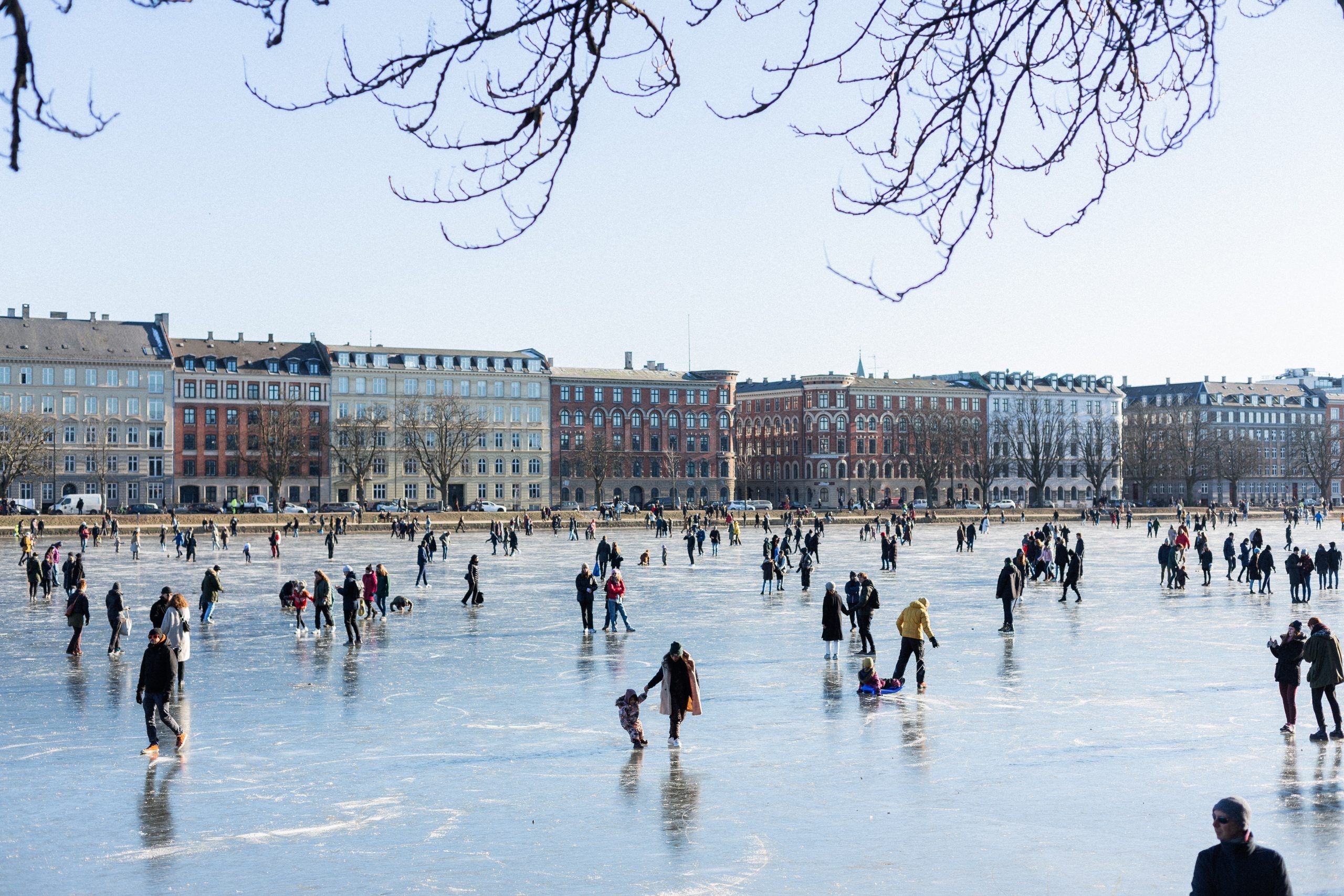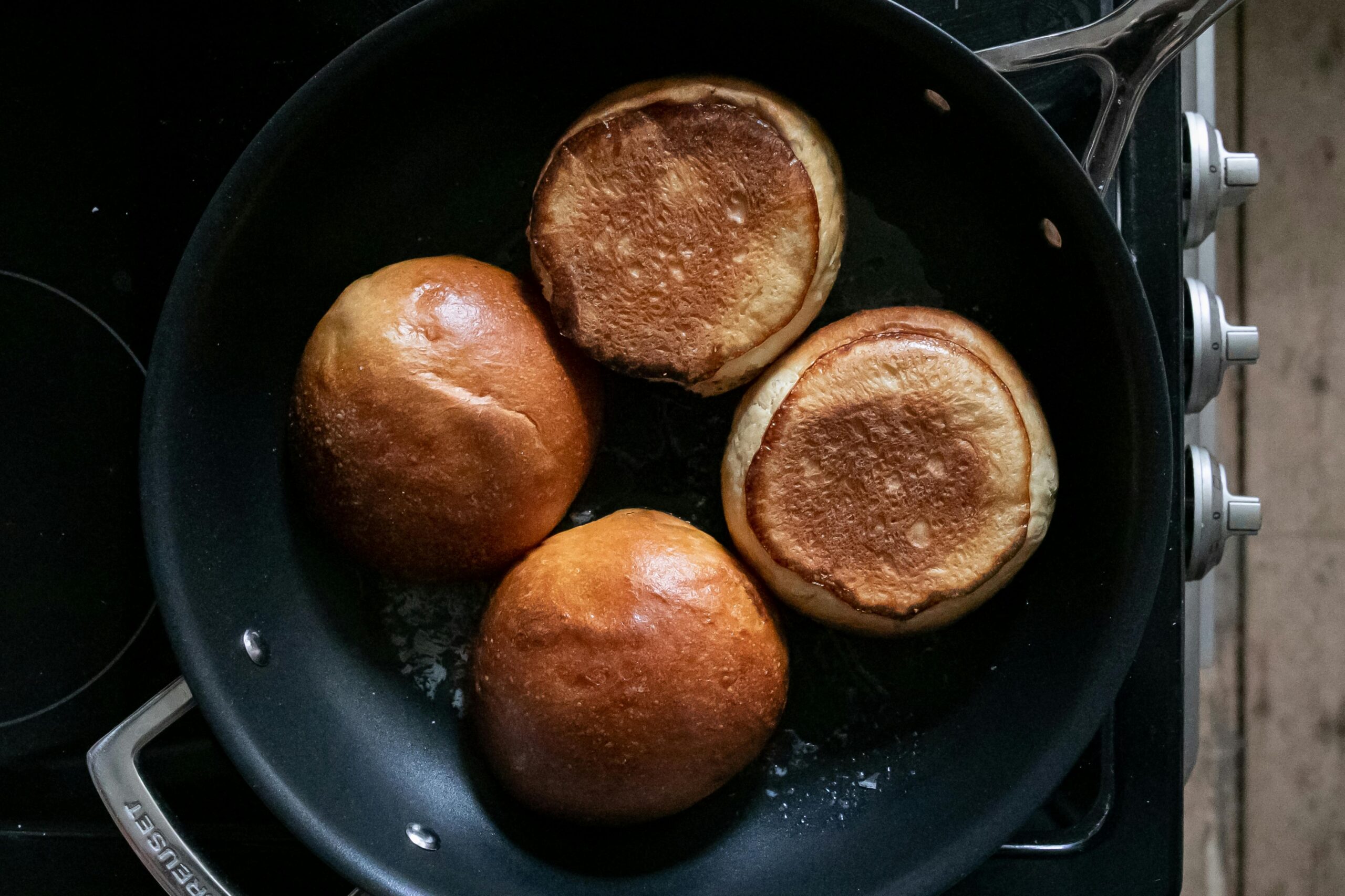‘Se min kjole, den er blå som havet.
Alt hvad jeg ejer, det er blåt som den!
Det er fordi jeg elsker alt det blå,
og fordi en sømand er min ven …’
This is a part of a famous Danish children’s song about friends who work in different professions and the colour of the uniforms that they wear. During my time in Denmark, I have explored different ways to make friendships. It took me a lot of time and effort, but I discovered that it was possible.
Cracking the ‘Friendship Code’
Now after reading and listening to many comments on some expat forums and groups over the years, I understand that the task of making friends in Denmark is still a riddle for many non-native people who now call Denmark their home.
So, I want to share some of my own experiences and opinions gained from my time there.

Do not expect your first friends to be Danish:
The first thing you must keep in mind is not to expect a Dane to become your first friend in Denmark, although it could happen if you are lucky!
Try to get along with other expats, as they may be more open to listening to you and may even share common problems. You can then build your network from these relationships and eventually get connected to the Danes. For example, if your friend’s friend is a Dane, there could be a good opportunity for you to connect with them.
My Bulgarian friend Plamen Nikolov, an entrepreneur who has been living in Copenhagen for eight years, shared this story with me. I am just putting it here quote-unquote:
“When I first came to Denmark, I was quite attracted to the idea of having Danish friends and becoming part of the community here. However, I discovered that it proved to be a longer process than most newcomers think. Because of the social foundations, Danes have a wide spectrum of options when it comes to making foreign friends and Danes tend to be quite selective and oftentimes uninterested. In my case, to make friends with locals I had to first leave the idea of having local friends. It came naturally and it began when I started to develop skills in both the professional and personal spheres. By having similar interests, I then started to establish relationships with local people based on mutual interests. So, at the end of the day I discovered that the big question is not “What I want?” but “What are the needs of the community” and “How do I fit in it?”
Find out the common factors and your friendly spots:
This could be an event held at your embassy or organised by one of your home country groups. Sometimes it is just one of the commune meetings, a Danish language learning group, a sports group, a walking tour group, or a theme-based meetup event etc. Finding like-minded people at these type of events may be a good start.
I have also collected some interesting opinions from different people.
Clara Grijalvo, a Spanish friend living in Copenhagen for the past 16 years who has recently received her Danish citizenship, shared her views:
“The best thing to begin with is to enroll in a sports club or an association where you can make friends with the people who are also involved there. Furthermore, in the workplace, it is easier to be friends with a group of younger or single colleagues than those who have a family. This is because these younger people often prefer to meet together amongst themselves after work to socialise. From my experience, it is also easier to be friends with Danes who are new to the city in which they live. For example, Danes from Jutland or Odense who come to live in Copenhagen. They also feel completely new as yourself in the city and would be more open to socialising.”
I was also told by some other friends that Copenhagen is more cosmopolitan and expat-friendly than other Danish places. That view is also found from my own personal experience. For example, on my first day in Copenhagen, I was helped by many Danes in Copenhagen when I was looking to find my Airbnb apartment. Furthermore, two journalists actually helped me carry my luggage and, as they did so, we talked about what I had previously read concerning so called ‘Danish unfriendliness’. They told me that what I read was basically true because Danes find it difficult to initiate a conversation with strangers due to shyness, but they acknowledge it and, at least in Copenhagen, people do make an effort to socialise.
After a while, I began living with a Danish family and my understanding of the Danish mentality on this point helped me to understand Danish values as well as the Danish way of life. The family were so supportive, kind and understanding, and we remain good friends to this day.
One lady from Odense told me that since it has a small population, people there are more interested in being friendly with new people and are happy to socialise with them because Odense is very different from the other big cities. Furthermore, one American expat told me that Danes who have travelled abroad and stayed in other countries are more open to listening to and understanding non-natives better. In your workplace, you can also ask for suggestions from your workmates on how to interact with local people so they may try to help you as well.
Find a part-time job where social interaction is inevitable:
My first part-time job in Denmark was working for a shipping company in passport control. Here I found that I could interact with customers from many different cultures. Also, my team members were very diverse. Some of them are now my good friends. So, find a part-time job where you are forced to interact with different people. It will help you to build a great network.
Volunteering
Just like having a part-time job, volunteering also provides wonderful opportunities to meet new people and interact with them. It can be anything from helping a Danish family to moving home or helping someone with their gardening. You can also assist someone to arrange events as well as help others to co-ordinate things for some associations or non-profit organisations such as the Red Cross, or even volunteer to work as an intern for a startup company etc. Volunteering is a good way to gain first-hand experience of the Danish world of work.
Understand the ‘Concept of Danishness’
It is also important to understand the cultural peculiarities of Denmark otherwise known as the ‘concept of Danishness’. Danish cultural knowledge will give you many hidden insights about how to break the code and integrate better with them. The first step is to understand that the Danes have a strict division between private and public life. Danish privacy is spread out in the form of separate circles. Small talk has very little value in Denmark. It is important to note that family and private life circles are also separate. So, there are situations that exist in which a teenager or an adult have their private circles that the rest of the family may not be a part of. Danes, just like the Germans, consider small talk as a waste of time and energy.
On the contrary, in many relationship-orientated cultures like India and Spain, these circles of privacy would look like a Venn diagram below. Here the private life can be easily mixed up with their social and work life. Small talk is a great starting point for building relationships in this case.
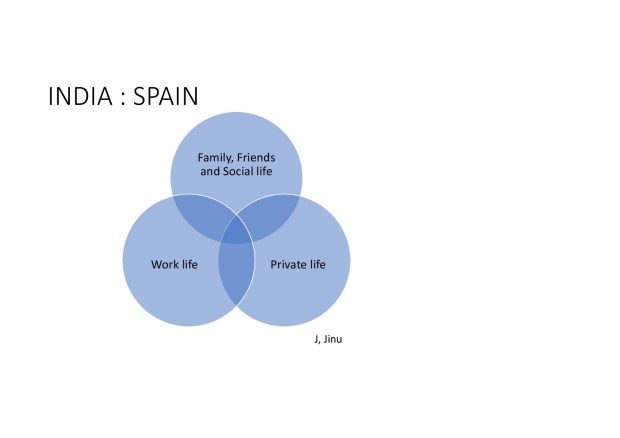
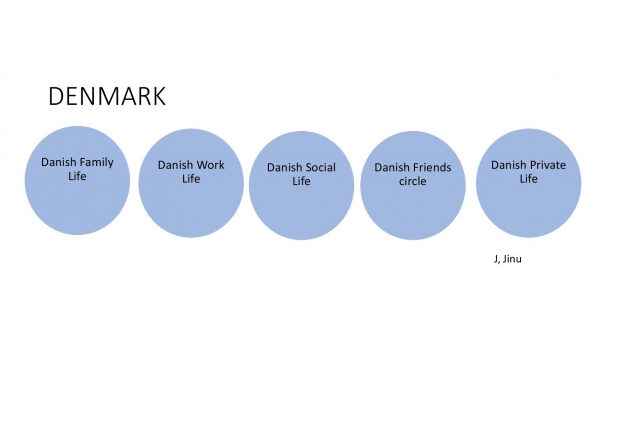
Show the White flags of peace
Once you understand these privacy circles, the next step is to show your white flags of peace-making. This means that you never create an impression that you are trying to invade their private circles. Understand and respect their circles and be proactive to learn about their interests and what they do in their free time. Take the chance to find out whether your Danish colleague is free sometime during the month in order to go out for a movie or to go for a meal at a restaurant together. Once you find a mutual free spot, just go ahead and invite them.
Danes also have a similar feeling of not wanting to enter into the private circles of others. However, it might go well if you show your ‘white flags’ and convince them that it is fine as long as you keep the lines of respect and modesty. But, never try to rush in this process.
Backlash
Inviting them to your home, to the cinema or a restaurant doesn’t always guarantee that the Danes will invite you back to their homes. Sometimes it takes years to establish such a strong bond. Danes do not need to create new friendships until they find a reason to do so. Show patience and do not get offended or surprised if you are not invited back in many instances.
Learn Danish
Learning Danish language is the best thing you could do if you want to integrate into Danish society. This is not an easy task, but if you work hard on this, half of your job is done. Karmella Ban, my Croatian friend living in Copenhagen, stresses the importance of learning Danish as the key to successful integration in Denmark. In her own words:
“I would highly recommend learning the Danish language and while learning the language also trying to learn about Danish culture. I used to set a goal of learning at least five Danish words every day to get a vocabulary big enough to make sentences, which helps me to communicate. And I did it without failure. This has made my integration process easier.”
Be explorative and proactive
Take a chance and go ahead and try to talk to someone at a fair, a festival, a seminar, or an event. One day a boutique shop owner attending an event was sitting next to an Indian guy. They began to talk, and the boutique owner discovered that the Indian was a web designer. The boutique owner was delighted because he was looking for someone to help start his new website. So, they both came to a quick agreement to work together. Being proactive and showing initiative are two important skills evidenced here. Sometimes if you introduce yourself through LinkedIn and invite a senior professional working in a similar field of yours, he or she may be willing to accept a short meeting over coffee to discuss trends, ideas and suggestions. Some of these types of meetings could help to build your professional networks and references.
When I think about the concept of friendship in Denmark, Bluetooth technology comes to mind. The name was inspired by a Danish king named Harald Bluetooth who united the different tribes of Denmark. In a similar way, Bluetooth technology connects computers to several other devices to communicate and collaborate. So, the idea of ‘connecting’ is already in the Danish genes. You just need to learn to crack the code and do it ‘Danishly’.
